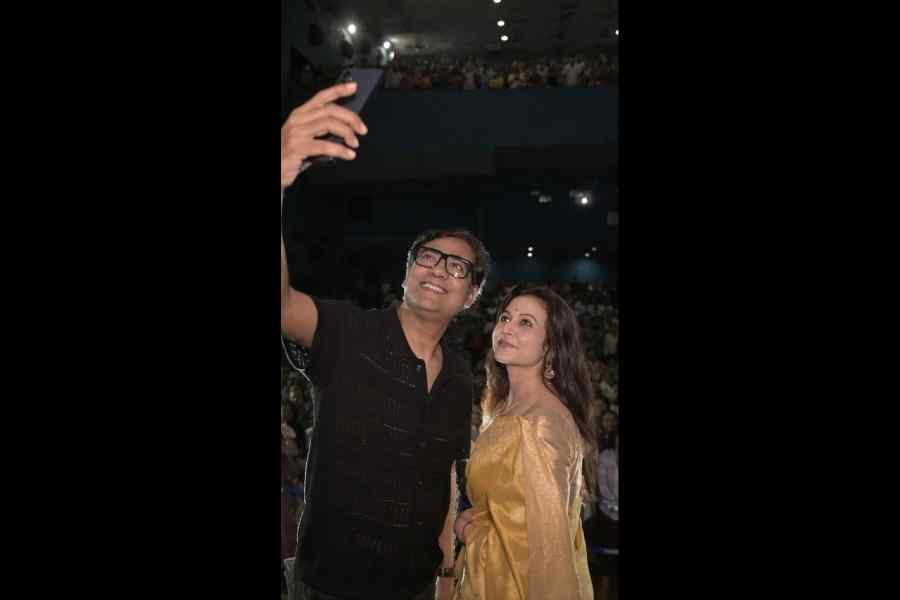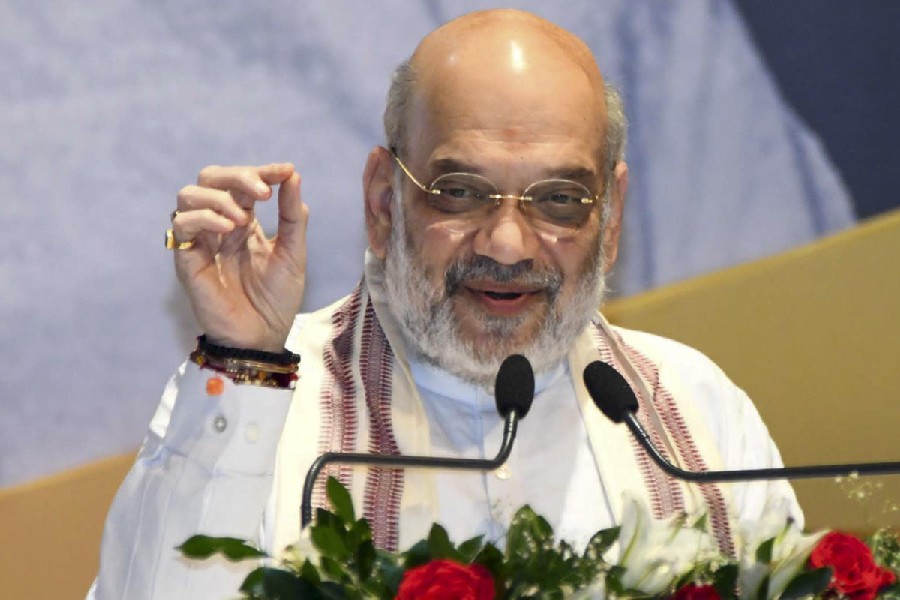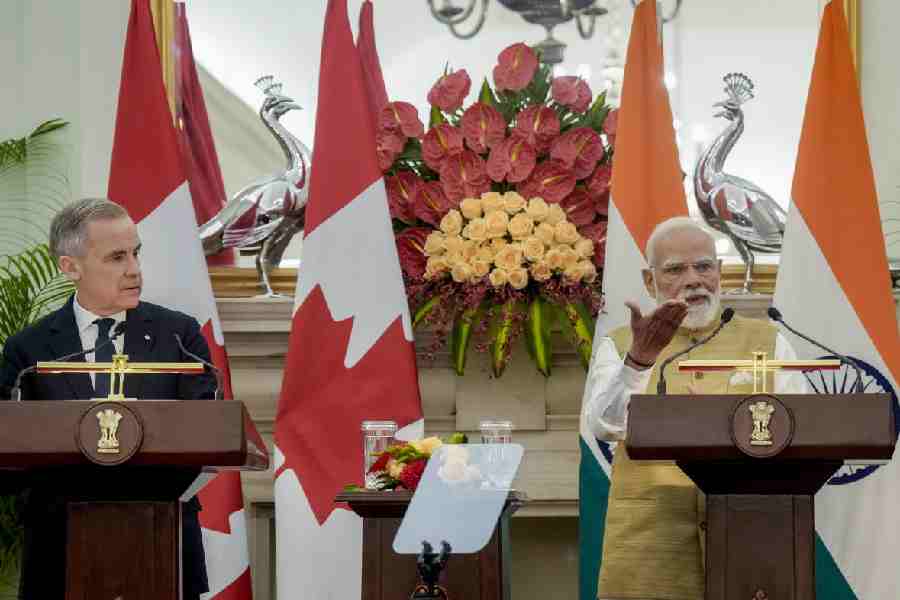Annapurna Basu’s social drama, Sharthopor, which is dedicated to ‘mothers and their brothers,’ highlights the importance of amplifying women’s voices in family matters and recognising their legal rights regarding inheritance and property ownership. Sharthopor raises important questions that reflect ongoing societal realities. A t2 chat with Koushik Sen, who has delivered a standout performance in the film...
Sharthopor is performing really well at the box office, with back-to-back houseful shows. Do you feel like celebrating this?
I attended Prosenjit Chatterjee’s Diwali party recently, where our team was congratulated by everyone. To me, this is the true celebration of the success we have achieved. I don’t feel the need for lavish celebrations to validate our film’s success. This week, we started with almost 11 houseful shows. Instead of focusing on celebrating, I believe it’s crucial for us to reflect critically on our work. There’s an expectation from Annapurna to replicate the success of Sharthopor, but true artistry demands the courage to innovate. While the business side of art cannot be ignored, it requires a different approach from other businesses. Personally, I don’t harbour grand ambitions for my film career; theatre is my passion. Any success I achieve through films, television, or OTT is a bonus for me. Therefore, I see this as an opportunity for self-reflection.
Although theatre is your primary focus, so many people come to watch a film featuring Koushik Sen.
I consider that a stroke of fortune and feel truly honoured when audiences express their appreciation. The directors I’ve collaborated with, whether it’s Mrinal Sen, Tapan Sinha, Aparna Sen, Anjan Dutt, Srijit Mukherji, or Kaushik Ganguly, all appreciate my dedication to theatre and understand that I need to devote time to this craft. I began acting in films back in the fifth grade, but had to pause for my studies. Later, I married Reshmi, as her family expected me to take a more conventional job. Fortunately, Reshmi has always been supportive, allowing me to return to my passion. I simply view this as a matter of luck and the kindness of the audience.
Since acting in films isn’t your ultimate passion, how do you decide on your scripts?
Despite years in the industry, I haven’t managed to save much, leading me to sometimes pick films that don’t showcase my true talent as an actor. Not focusing on savings is something I have, perhaps, inherited from my father, Shyamal Sen, who was an accomplished theatre actor and director. And let’s not even get started on directors who, despite having a solid script, lack the necessary skill.
However, there’s a valuable lesson that Soumitra Chatterjee passed on to me early in my career. Once, Satyajit Ray attended one of Chatterjee’s film screenings and noticed that he wasn’t fully engaged in a particular scene. Upon questioning, it turned out that Chatterjee had deemed the scene subpar, which affected his performance. Ray was quite stern with him, and taught him an important principle: when we choose to accept a script for any reason, we owe it to that film to give it our all. Regardless of the circumstances, we must deliver our best performance. I might vent to my wife and son about certain challenges, but when I step onto the set, I’m committed to giving my all.
What drew you to your character in Sharthopor?
I was captivated by the honesty of the script. Annapurna really poured her heart into it. My character, Sourab, has some wonderful nuances that I appreciated. He cares deeply for his sister but often overlooks her feelings, which is something I think many of us can relate to. We sometimes say or do things at home inadvertently that hurt the women in our lives; I’ve faced that with Reshmi, too. It took me some time to truly understand her, which helped me connect with Sourab’s journey. He’s also quite restless in how he walks, talks, and acts in various settings, like in the court or the hospital... it reflects his insecurity. He’s constantly worried about the pressures of time, especially considering his age and the responsibilities he bears for his family. Having lived in a similar old house in Bhawanipore, I understood his struggles with its upkeep and his eagerness to sell.
What was it like working with Koel?
Koel’s presence helped me a lot. There’s an innocence in her expression, and she possesses a vulnerability in her eyes that I find unique among her peers. Our first scene together was in the drawing room, where I got drunk after Kali Puja at her house. I underestimated her truthfulness as an actor before this scene. So, prior to that scene, I deliberately tried to intimidate her a bit. It was our first scene together, and with her being nervous and me being a senior actor, I didn’t allow her to rehearse much with me. That added to her nerves. But she surprised me with her spontaneity in that scene, which helped me too in charging her. I believe Koel truly shines in this film.
The Bhai Phonta scene between you and Koel felt so natural...
It’s interesting to observe how new directors often have two extremes — they either go all out with a scene or keep things overly simple. Annapurna got us ready for the shot in no time, providing just a quick briefing before diving straight into it. This approach allowed for a genuine spontaneity in our actions and emotions, even though the scene seemed straightforward on the surface.
One of the standout moments is your emotional scene with Koel. Did that require extensive rehearsal?
Not at all! It was very much in the moment. The scene begins on the veranda with the clearing of old items, but there’s a transition as we move into the room. The dialogue and the situation were very normal. I really have to credit my co-actor Koel and our cinematographer for this scene. Often, cinematographers spend a lot of time preparing for transitions, and while that’s not a critique, it can sometimes disrupt the flow. Anup, our cinematographer, opted for a quicker approach here, which actually played to our advantage as actors. This way, we were able to maintain our emotions seamlessly throughout the scene.
The cast features a strong group of talented actors, ranging from the veteran Ranjit Mallick to Koel and Anirban Chakrabarti. The atmosphere on set was certainly lively...
When it came to our performances, we were all quite focused. Ranjit Mallick was deeply immersed in his character and lines. He had quite a few dialogues to navigate. It was truly heartwarming to see how dedicated Koel was, making sure her father was well-supported on set, while also concentrating on her own role. Anirban, on the other hand, is refreshingly straightforward. I have a lot of respect for him; not only is he an exceptional actor, but he’s also incredibly down-to-earth. Since we were shooting for Shotyi Bole Shotyi Kichhu Nei also, we spent a lot of time together during breaks. Our court scene was shot near Park Street, and we often enjoyed lunch at Flurys.
What gave you the confidence in Annapurna’s ability to lead the film?
Trust in a director typically stems from two scenarios: either they exhibit strong confidence right from the start, akin to someone like Soukarya or Pavel, or they might show a bit of uncertainty. Annapurna’s approach involved engaging in discussions about scenes with the actors, cinematographer, and assistant directors. She certainly had a vision and a plan, but she also valued our input, which is a constructive approach. It’s far better to have a director who is a little uncertain but seeks collaboration than one who projects false confidence while mismanaging the process. When that happens, it leads to wasted resources — time, money, and energy. I firmly oppose the notion of labelling a director or actor as ‘new’ and using that as a yardstick for their qualifications. Would anyone feel at ease having a doctor proclaiming he’s just starting out before operating on them? That notion is completely unnecessary. Being new should never serve as a pretext for failing a film.
How crucial was it to share this story that highlights the necessity of recognising women’s voices in family decisions and safeguarding their legal rights?
While the film certainly leaves the audience with a feel-good sensation, it thoughtfully explores our current inability to truly listen to one another. For me, this film was not just about acting; it resonated on a deeply personal level. Every time I engage in a compelling theatre piece or film, I become acutely aware of my own imperfections. Each meaningful narrative I encounter contributes to my growth as a person, allowing me to mend the facets of my humanity.











